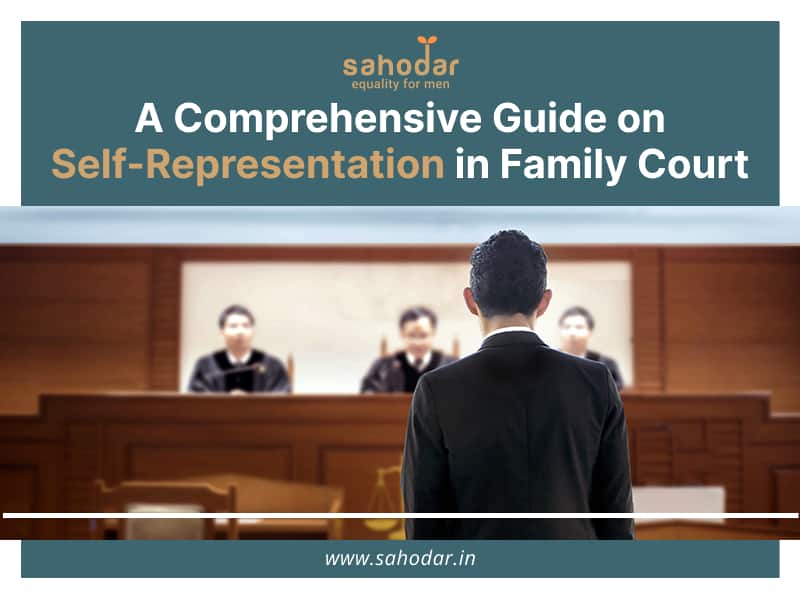Family court proceedings often arise at critical junctures in individuals’ lives, from divorce and child custody disputes to matters involving spousal support and property division. For many, the financial burden of hiring a lawyer can be prohibitive, necessitating self-representation. Despite the challenges, individuals can effectively navigate family court with determination, research, and the right approach. This comprehensive guide provides a step-by-step overview for those seeking to advocate for their cases in family court.
Understanding Your Case
The first step in effective self-representation is a profound understanding of the case. This involves familiarising oneself with the legal issues at hand, relevant laws, and court procedures. Essential documents, such as marriage certificates, financial records, and supporting evidence, must be compiled for a robust case foundation. Understanding the nuances of one’s circumstances lays the groundwork for a strategic and informed approach to the legal process.
Researching Family Law
Empowering oneself with a foundational understanding of family law is crucial. Numerous online resources, legal libraries, and self-help books provide accessible insights into the legal principles governing family court matters. Focusing on laws pertinent to the case, such as divorce, child custody, spousal support, or property division, ensures that self-represented litigants are well-equipped with the knowledge necessary to make informed decisions.
Court Procedures and Rules
Each family court operates within a unique set of procedures and rules. Familiarity with these guidelines, deadlines, and requirements is paramount for effective self-representation. Individuals are encouraged to explore the court’s official website, attend public court sessions, and consult legal guides to gain insights into the formalities integral to court proceedings. This knowledge enables litigants to navigate the system confidently and adhere to established protocols.
Legal Aid and Self-Help Services
Access to legal aid services and self-help resources is instrumental for self-represented litigants. Many jurisdictions provide guides, forms, and practical assistance tailored to individuals navigating family court without legal representation. Workshops or clinics organised by courts further empower litigants by providing education on legal processes, bridging the knowledge gap and fostering a more equitable legal landscape.
Drafting Legal Documents
Meticulous preparation of legal documents is a cornerstone of effective self-representation. Court forms, pleadings, and motions must be crafted precisely to reflect the litigant’s position accurately. Utilising templates provided by the court or reputable online legal platforms ensures completeness and accuracy, minimising the risk of procedural errors that could impact case outcomes. Attention to detail at this stage is critical for building a compelling case.
Court Etiquette
Proper court etiquette is not merely a formality but a strategic element in self-representation. Familiarity with courtroom procedures, appropriate attire, and respectful conduct enhances the litigant’s credibility. Presenting the case coherently and addressing the judge courteously and clearly contribute to a positive perception, reinforcing the litigant’s position in the legal proceedings.
Evidence and Witnesses
Effective organisation and presentation of evidence are pivotal to building a persuasive case. Understanding the rules governing admissible evidence and presenting it in a clear, organised manner strengthens the litigant’s argument. If witnesses are involved, thorough preparation is essential to ensure their testimony aligns with the case strategy. Well-prepared witnesses contribute significantly to the overall persuasiveness of the litigant’s position.
Staying Calm and Focused
Family court proceedings are inherently emotionally charged. Despite this, maintaining composure is critical for self-represented litigants. Emotional resilience, adherence to factual discourse, and avoidance of unnecessary confrontations contribute to a rational and persuasive case presentation. A calm and focused demeanour enhances the litigant’s credibility and effectiveness in navigating the complexities of family court.
Conclusion
Self-representation in family court is a multifaceted undertaking that demands dedication, preparation, and a continuous commitment to learning. While financial constraints may necessitate this approach, the journey is not impossible. Armed with the right resources and mindset, individuals can successfully navigate their legal matters and secure favourable outcomes. Seeking advice from legal professionals when needed and approaching the process with determination ensure effective advocacy for rights and interests. By empowering individuals with the knowledge and tools necessary for self-representation, we contribute to a more accessible and equitable legal system for all.

